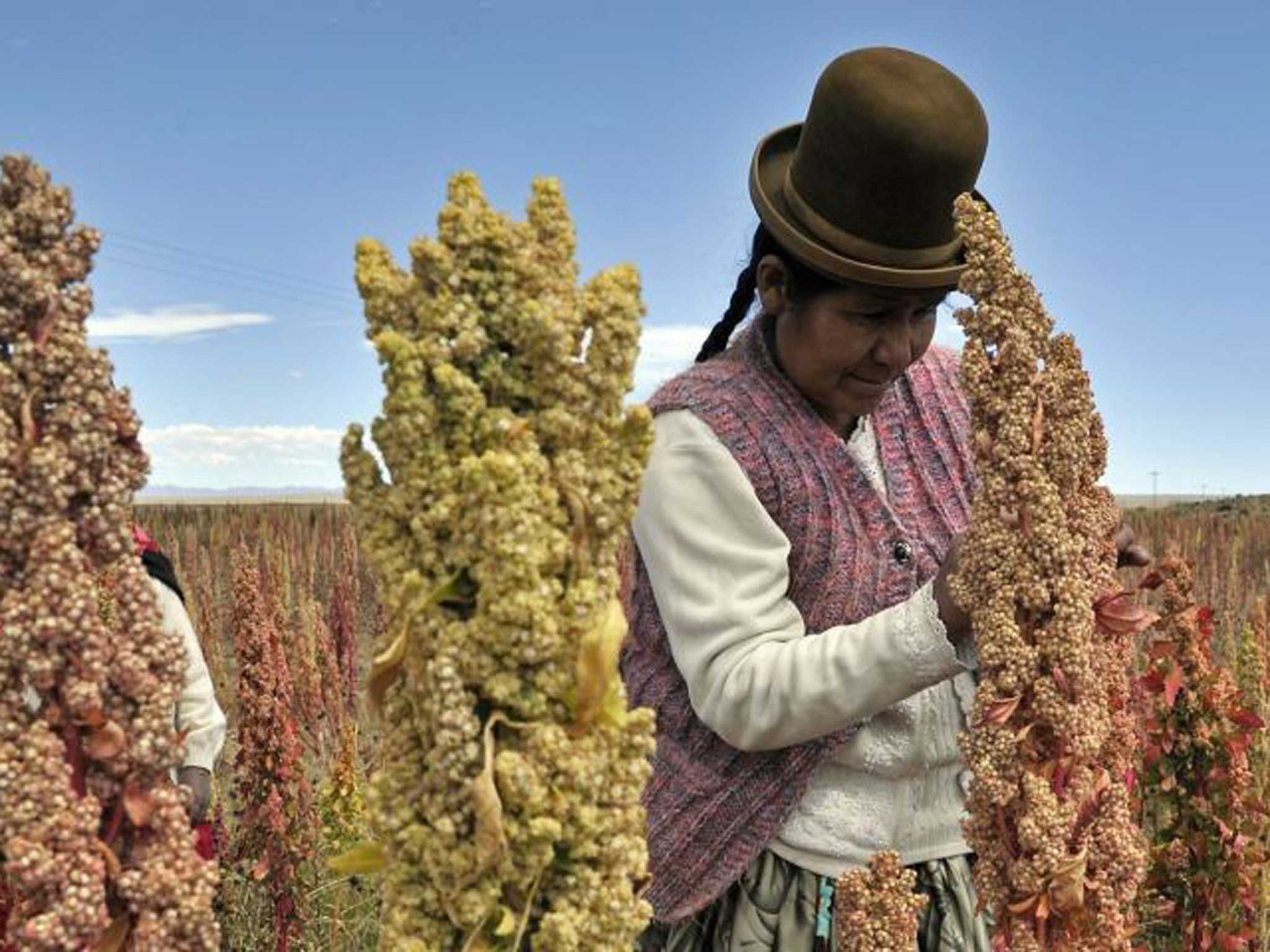Quinoa: A health-food shop obscurity gone mainstream
Middle-class demand for the superfood has cultivated mockery. But there's something more vital than pride at stake

Your support helps us to tell the story
From reproductive rights to climate change to Big Tech, The Independent is on the ground when the story is developing. Whether it's investigating the financials of Elon Musk's pro-Trump PAC or producing our latest documentary, 'The A Word', which shines a light on the American women fighting for reproductive rights, we know how important it is to parse out the facts from the messaging.
At such a critical moment in US history, we need reporters on the ground. Your donation allows us to keep sending journalists to speak to both sides of the story.
The Independent is trusted by Americans across the entire political spectrum. And unlike many other quality news outlets, we choose not to lock Americans out of our reporting and analysis with paywalls. We believe quality journalism should be available to everyone, paid for by those who can afford it.
Your support makes all the difference.What did a 3,000-year-old, protein-rich seed native to the uplands of South America do to deserve such scorn? Quinoa (pronounced "KEE-nwah") is now established as a health-food shop obscurity gone mainstream – Tesco sells organic quinoa rye bread for £1.65 a loaf – but rarely has something so innocuous encountered such derision.
In a challenging week for the pseudo-cereal, all of Australia took aim after quinoa featured heavily in an 82-page list of dining demands for the England cricket team during the forthcoming Ashes. Quinoa with roasted butternut squash, apricot and parsley appeared alongside quinoa and cranberry breakfast bars.
"We thought all England served up was pies," read a headline in The Sydney Morning Herald.
On Monday, one anti-quinoa wag drew up a parodic method for preparing the seed that went viral online. "Quinoa (instructions for tossers)" starts: "Rinse 1 part quinoa in cold water, twattishly". Then: "Let stand for 10 minutes, while you have a chance to loathe yourself even more for the middle-class, stereotypical, waste of space you've become". Before: "Enjoy. You complete wanker."
Elsewhere, in a blogpost called "five reasons to hate quinoa" that made the pages of The Wall Street Journal, a Canadian sceptic wrote: "Just try getting that stuff out of your teeth without a glass of water and 12 meters of dental floss."
Henry Dimbleby is co-founder of the Leon restaurant chain. Its superfood salad put quinoa on the British menu in 2004, back when lentils were the repository for class-food snobbery. He blames the backlash on etymology and those who obnoxiously correct people who say, for example, "kwin-OH-a".
"I think it's just the pronunciation that irritates people," he says. "It feels socially exclusive because people look at it and think they'll be judged if they say it wrong. But who cares?"
The unmatched health properties of the only plant food that contains all the essential amino acids, trace elements and vitamins compelled the UN to declare 2013 the international year of quinoa. "Quinoa is now poised for global recognition," UN Secretary-General Ban Ki-moon said, with an eye on parts of the world affected by hunger rather than Alastair Cook's post-match dinner plate.
Booming demand in high-end salad has helped lift seed prices beyond the means of communities for whom quinoa has been a staple since the time of the Incas, but many farmers are capitalising. One Colombian farm has developed an instant powder that it is pitching to new markets including China. And ordering quinoa in Qingdao will be a mouthful in itself.
Join our commenting forum
Join thought-provoking conversations, follow other Independent readers and see their replies
Comments